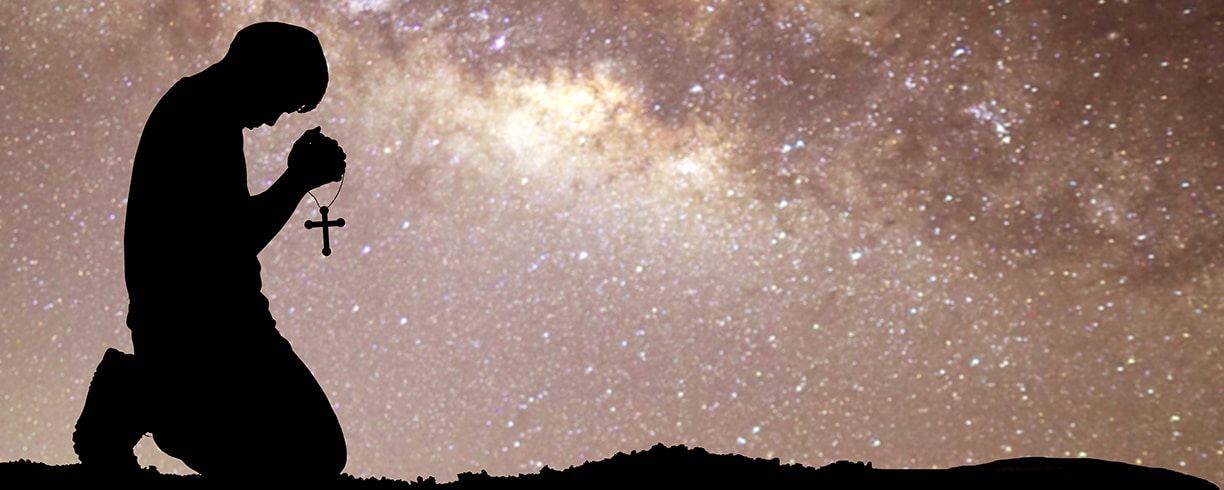Ripped Out of the Headlines

Is Christianity in America at Its Lowest Ebb?
Let’s play a guessing game. I will share with you some headlines I created based on events that happened in a period of American history. Your job is to guess when they happened …
The first series of headlines bring news of moral degradation in America. “Alcoholism Rate Climbs Over Six Percent in America,” the first headline announces. “Fear of Assault Forces Women to Remain Home After Dark,” another headline reveals. Moral depravity shocked citizens who heard, “Mob of Men Dressed as Women Assault U.S. Official.”
Careful researcher and historian Dr. J. Edwin Orr notes that sexual promiscuity, substance abuse, violence, unbridled anger, assault, and robberies were part of daily life during this period in America.
Surely, college campuses, training the hope of America’s future, would be a haven from the rampant moral depravity of this time. Sadly, the situation there was just as shocking. Consider this series of stories from campuses across America: “Latest Poll Reveals Lack of Faith: Zero Christians in Harvard’s Student Body; Two Christians in Princeton’s.”
It went far beyond mere spiritual apathy. Anti-Christian philosophy had infiltrated universities that were originally founded to advance God’s kingdom. For example, Princeton University was founded with the motto, “Under God’s Power She Flourishes.” Its seal reads “Old Testament and New Testament.”
There was outright opposition to Christianity on college campuses. Revolt against the rules reigned.
“College Campus Hosts Mock Communion Service” and “Students Burn Stolen Bible in Public Bonfire,” might have been the headlines. Christian organizations were forced to meet in secret on some campuses out of fear of assault.
During this period of American history, churches also were struggling and languishing. “Churches Face Tough Decisions Amid Record Low Attendance Nationwide” would be an appropriate headline for the time. Each denomination faced existential challenges. “Baptist and Methodist Churches Continue to Decline in Membership” and “Lutheran and Episcopalian Churches Discuss Merger as Struggles Continue,” might have been reported.
Young people were not involved in church. It became a collection of elderly people who were slowly dying off. Churches saw few converts. A cold winter had settled on the American church.
One Christian leader wrote to his friend that the American church was, “too far gone to ever be redeemed,” while a fierce critic of Christianity praised its demise as he predicted, “One hundred years from my day, there will not be a Bible on earth except one that is looked upon by an antiquarian curiosity-seeker.”
When do you think these headlines were written? They sound like something we might read today… but these events happened at the turn of the century. Which century? All the events I’ve described occurred in America from about 1780–1800.
On the heels of the American Revolutionary War came an economic, moral, and spiritual downturn that threatened the future of this young nation. Chief Justice John Marshall (1755–1835) wrote the words mourning the death of the American church, while Voltaire (1694–1778) was the outspoken critic who predicted the soon collapse of Christianity.
I am glad to report that both these men were wrong. The church did not die. Christianity did not disappear. But how did things turn around? At Southwest Radio Ministries, we have long proclaimed, “God is still on the throne and prayer changes things.” That is precisely what happened.
What Did God Do?
With their backs against a wall in a spiritual battle for the soul of the young nation, God’s people began to earnestly pray. But I am getting ahead of myself. Truthfully, God had set things in motion several years before the Revolutionary War. The great American theologian and minister Jonathan Edwards (1703–1758) wrote a book titled, “An humble attempt to promote explicit agreement and visible union of God’s people in extraordinary prayer for the revival of religion and the advancement of Christ’s Kingdom on earth, pursuant to Scripture-promises and prophecies concerning the last time.” Pay close attention to the words he chose for this title.
After Edwards’ death and the Revolutionary War, this book found its way to Baptist church leaders in Great Britain. They, too, were facing a wintry season. Around 1780, British church leaders of various evangelical denominations created a “Union of Prayer.” They urged their churches to set aside one day a month to seek God for a spiritual awakening. It was quickly adopted and God’s people began praying all across Great Britain. In 1792, God answered those prayers as an awakening broke out in British prayer meetings.
By 1794, American churches were joined together in prayer. They set aside the first Monday of each month to unite in revival prayer, which they called the “Concert of Prayer.” I love that title because a “concert” speaks of many voices united with the same message. They lifted a concert of prayer to Almighty God. Isn’t it amazing how Christians in Great Britain and America were united in prayer just years after the Revolutionary War?
God began moving in a mighty way across young America, starting around 1796 in New England and spreading southward over the following years. Historical accounts describe a deeply spiritual work of God in many hearts with a strong conviction of sin.
In this period known as the Second Great Awakening, thousands were converted across America. Conviction of sin led to repentance and a saving relationship with Jesus. As a result, a spiritual winter became a spiritual springtime with showers of blessings from Almighty God. His kingdom advanced mightily over the years that followed and churches blossomed. God cannot be defeated!
Did the awakening affect college campuses, as well? Yes! In 1795, Dr. Timothy Dwight, the grandson of Jonathan Edwards, became president of Yale University. In one year, about half the student body was converted. Nearly three-quarters of Yale’s graduating class of 1802 entered full-time vocational Christian ministry.
It is no understatement to say this movement of God transformed America. The abolition of slavery, child labor laws, and great advances in access to education were all social byproducts of this awakening. Bible societies, Christian mission societies, and the Sunday school movement were also an outgrowth. Entire communities were transformed across America as crime was reduced dramatically. The ministry “One Cry” says that by 1834 the total annual income from all benevolent societies rivaled the budget of the entire U.S. federal government. Imagine that!
Can God Do It Today?
Our country faces dire circumstances today as a result of our sinful rebellion against Almighty God. We stand in need of another awakening. Morality is eroding, college campuses are devolving and churches are struggling. Saddest of all, souls are stepping into eternity without Jesus every day.
However, America does not primarily need revival or a spiritual awakening. Revivals and awakenings are a means to an end. What America needs most is Jesus! He is the “end” we must seek. His truth will transform this country from the inside out as it did over 200 years ago. Jesus can save anyone from any sin. No one is too far gone to be redeemed.
That leads me to an important point. There is a difference between revival and awakening. The word “revival” means to bring back to life. Thus, the unbelieving world cannot be revived since they have never had spiritual life. Only the saved can be revived. The unbelieving world can be awakened only after the church is revived. That is the pattern we see in Scripture and in church history.
First Peter 4:17 says, “For the time is come that judgment must begin at the house of God: and if it first begin at us, what shall the end be of them that obey not the gospel of God?” Second Chronicles 7:14 says, “If my people, which are called by my name, shall humble themselves, and pray, and seek my face, and turn from their wicked ways; then will I hear from heaven, and will forgive their sin, and will heal their land.”
These verses are both directed at God’s people. We need to ask God to bring to our minds the sins lurking in our hearts that separate us from intimate fellowship with Almighty God. As the Holy Spirit brings this conviction of sin, we must be ready to repent. After we repent, we can walk closely with Jesus by seeking His face and following His heart each day.
Seek Jesus, not revival. That alone can transform your prayer life because we tend to focus on the answers to our prayers instead of the one we are praying to. Don’t get so focused on the products of revival that you miss the Person who gives it!
Join me as we seek Jesus together in prayer. I am not alone in believing that Jesus has already set things in motion for great spiritual victories. In answer to my question, “Can God do it today?” Absolutely, He can!
More from Prophecy in the News Magazine
This site uses Akismet to reduce spam. Learn how your comment data is processed.




Leave a Reply